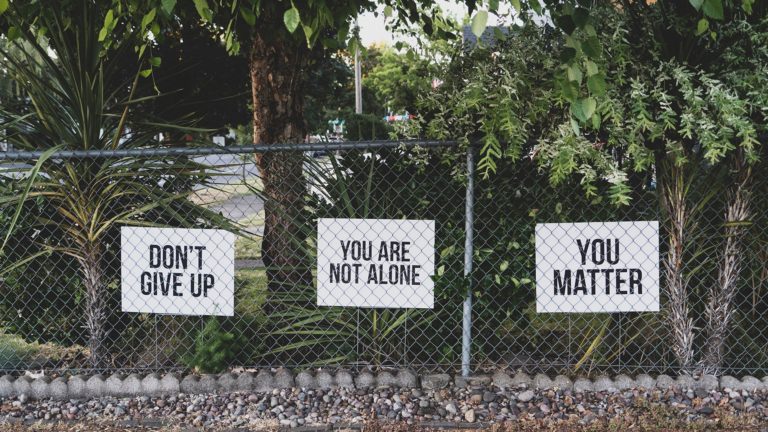Non-striving – learning to let go
April is National Stress Awareness Month, so I’m exploring how practising mindfulness can reduce stress. The mindfulness principle that has taken me the longest time to get my head around is the idea of non-striving, essentially learning to let go.
From a very young age, it was instilled in me to strive my hardest, work as hard as I can, and you will be successful. Well, that might be true for some people, but for others not so. I worked for many years in a corporate environment, and it felt like the more I strived, the less successful I felt as there would always be another goal to aim for.
It was never-ending! And, for the most part, this striving was not enjoyable. Years of my life passed, and it just became a habit, a routine – strive, then achieve success, and set a bigger goal. Strive, then achieve success, and set a bigger goal. I found myself never actually taking the time to enjoy achieving these goals and ultimately felt exhausted.
If you had said to me back then – Sarah, you will be more successful if you don’t strive. I would have literally cried with laughter. My upbringing, society, and work world told a different story of how I should be.
From striving to non-striving
It wasn’t until I felt burnt out, exhausted and so unhappy that I decided things needed to change, beginning my journey of learning to let go. I would always have that drive in me, but I wanted to be more successful with a lot less physical and mental exhaustion.
I started my own business and at first, retained this mentality of doing more with less. Then came mindfulness!
As I said, the concept of non-striving felt very abnormal, until I made it my own in a non-judgmental way. I might never feel comfortable with not striving at all, however, my way of practising non-striving is:
- Learning to let go of the outcome more. Not in a ‘whatever will be, will be’, kind of way. But simply not holding on so tight to control the outcome.
- Recognising that my best is good enough and that I am enough.
- Setting goals that are more realistic and that take into consideration my mental health and well-being. Being able to say no when I am putting myself under too much pressure to strive for things that don’t add value longer-term.
- Doing more with less. Not constantly feeling like I have to run myself ragged to achieve my goals.
How mindfulness has helped
Not only did mindfulness help me explore what non-striving is. The non-judgment principle helped me find a way that suited me. When I changed my whole approach to business and grounded it on this principle of non-striving, business flowed in from all sorts of directions. My biggest contracts and most rewarding work have come in moments where I have not strived but trusted that success will come and that if the project is meant to happen, things will fall into place.
I cannot put this down to just one thing with mindfulness, but to regular practice and just exploring the concept of relaxation in general. When we are truly relaxed, it’s almost like the ‘non-striving’ naturally occurs.
Non-striving and children
This is where it could get controversial. Imagine telling a child to not try their best, not to put any effort in, whatever will be will be. Try not to strive to do your homework, or to win that race – it doesn’t quite feel right, does it!?
What if we took this non-judgemental approach and turned this into something that worked for us and our children? For example, instead of celebrating the ‘win’, why not celebrate the effort put in and the taking part? Instead of focusing on doing more and more to the detriment of our health and well-being, why not focus on our best being good enough, or adding value as opposed to always being busy and running around doing more but not getting the results we want?
Learning to let go is a personal journey
As I said, this principle has taken me some time to get used to. Perhaps for some people, this principle is just simply knowing when it’s time to take a break and stop striving for just one moment. Or perhaps it’s just stopping to celebrate successes along the journey.
Whatever this means for you, why not try it and build up a new habit of non-striving, or just simply strive less often?
Are you ready to start learning to let go?
There are lots of great meditations available online that can help us to have moments where we strive less and relax, try them out on Youtube!
Wishing you a wonderful day,
Sarah x
A bit about the author…
Sarah Makinde is a Business Psychologist, Mindfulness Teacher and Cognitive Behavioural Hypnotherapist. She has over 20 years of experience in the corporate environment and after going through her own journey with stress, anxiety and overwhelm, is passionate about helping her clients with similar issues.





